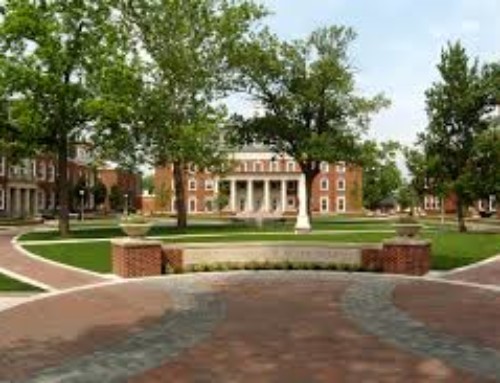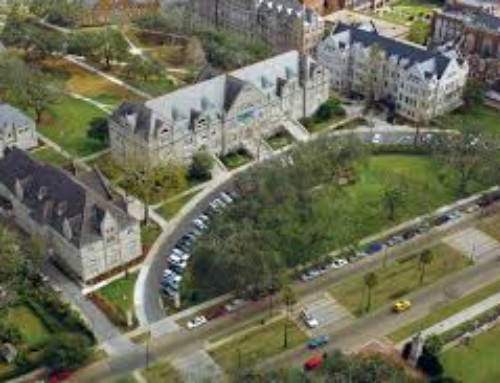 Washington and Lee University, located in Lexington, Virginia, is surrounded by the Blue Ridge and Alleghenies of the Southern Appalachians. The locals like to call it “God’s Country” because of the sheer beauty of the surroundings. They could also be referring to the pedigree of its two namesakes — George Washington, whose 20,000$ endowment saved the school from going under in its early days — and General Robert E. Lee, whose body is entombed in Lee Chapel, the spiritual center of the campus. Lee’s terms as President after the War began W & L’s transformation into the premier liberal arts college it is today.
Washington and Lee University, located in Lexington, Virginia, is surrounded by the Blue Ridge and Alleghenies of the Southern Appalachians. The locals like to call it “God’s Country” because of the sheer beauty of the surroundings. They could also be referring to the pedigree of its two namesakes — George Washington, whose 20,000$ endowment saved the school from going under in its early days — and General Robert E. Lee, whose body is entombed in Lee Chapel, the spiritual center of the campus. Lee’s terms as President after the War began W & L’s transformation into the premier liberal arts college it is today.
Not only do people make pilgrimages to visit Lee’s grave from all over the country and the world, they also come to pay homage to Lee’s horse, Traveler, who is buried outside the chapel. On the day I visited, Traveler’s grave was strewn with flowers, although the time-honored tradition is to place apples on his gravestone. There are numerous fishing, hiking, skiing, biking and other outdoor activities available to students within a short drive of the campus if students are inclined in that direction. The campus itself is also stunning, featuring red-brick buildings with large white colonnades fronted by large green spaces for students to congregate.
For Civil War buffs, Lexington is ground zero. Not only is Lee buried here, but so is Stonewall Jackson, who taught at the neighboring Virginia Military Institute which lies adjacent to W & L prior to the War. The schools are so close to one another that W & L students can often hear the cannons which are fired with regularity on VMI’s campus.
Washington and Lee has a lot more going for it than its good looks. It is a first-rate small liberal arts college with an undergraduate population of about 2000. The curriculum is diverse, offering students courses in just about any subject area a student with an inquiring mind might want to take. More than 1,100 undergraduate courses are offered. Students can take courses in The College, where all undergraduates begin their studies, encompassing the liberal arts, humanities and hard sciences, with notable interest among students in pre-health and pre-law studies or at the Williams School of Commerce, Economics, and Politics, which caters to students interested in accounting, business administration, economics, politics, and public accounting. Washington and Lee also is home to a top-25 law school and students who go to both the undergrad and the law school are called “Double Generals.” Like other elite liberal arts colleges, W & L professors teach all of the students — no courses are taught by T.A.’s. The student-body is predominantly white and W & L, in the cradle of the Civil War with a feel that is distinctively Southern, might be a tough sell to minority students. That said, the school has been upping its efforts to attract more minority candidates and to diversify its faculty and student-body.
There are three other distinctive features about life at W & L. The first is the Honor Code which is student-run and which binds all W & L students. What makes the Honor Code different is that it is not codified anywhere — students are just expected not to cheat or lie or deal with each other dishonorably in social settings. It is a serious business and honor code violations result in swift and certain punishment. Although there are appeals, the punishment is almost always expulsion. One student told me that a dropped dollar bill in the library can remain there for days as students respect other’s property. The same goes for computers, lap tops, and cell phones.
The second feature is the “speaking tradition” which dates back to the days of Robert E. Lee.. Under this tradition, students are suggested to greet one another upon passing on campus. There are more “hello’s” and “how are you doins” at W & L than anywhere else but it creates a friendly, non-competitive atmosphere of concern.
And the third feature is the Greek life. Few schools are as dominated by Greek life as W & L. Somewhere between 75-90% of students belong to sororities or fraternities. Although all fraternity and sorority parties are “open”, it must be hard for those few students who do not want to be Greeks.
Although students who attend Washington and Lee love campus life, some complained about the lack of food options outside of campus and the necessity of a car to get out of Lexington-bubble. For the older students, there are a couple of bars in town and a few fine-dining experiences, but most of the food options outside of campus are basic “fast food” which can get old, very quickly for those yearning for healthier fare. The closest “big city” and airport is in Roanoke, about an hour’s drive away, although DC and Richmond are longer, but doable drives, for students looking for a bit more action. Many students take advantage of W & L’s many study-abroad programs to get a break from the relative isolation of the Lexington-bubble.
W & L is one of the “hottest” colleges in the college circuit and competes with Davidson for the title of top liberal arts college in the South. It is a must-see for students who are looking for a quality liberal arts education or who want an high-quality academic experience in a Southern, genteel, somewhat preppie-like environment not unlike Duke or Vanderbilt but with more personal attention and more direct contact with professors.





